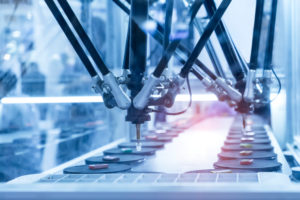 Certifications are an integral part of becoming a medical device manufacturer. These certifications prove that the companies that hold them have complied with accepted standards set by the certification boards, and that they are dedicated to excellent business practices. By confirming that your supplier has certifications such as ISO 13485, you are ensuring that you are working with someone who has met rigorous quality compliance’s. If you are unable to visit their facility yourself, it can be a useful gauge to measure a new providers merit.
Certifications are an integral part of becoming a medical device manufacturer. These certifications prove that the companies that hold them have complied with accepted standards set by the certification boards, and that they are dedicated to excellent business practices. By confirming that your supplier has certifications such as ISO 13485, you are ensuring that you are working with someone who has met rigorous quality compliance’s. If you are unable to visit their facility yourself, it can be a useful gauge to measure a new providers merit.
The International Organization for Standardization sets specific QMS, or Quality Management Systems requirements that deal specifically with medical devices and related regulatory conditions. In doing this, they are making sure that there is continuity amongst medical device manufacturing in all stages of the lifecycle. From installation, storage, and distribution, to design, development, and production. Obtaining and keeping an ISO 13485 certification is no easy feat, these accepted industry standards are a key indicator that an organization upholds the highest quality level in their facility and their products.
Published in 2016, ISO 13485 Is the International Standard for quality management systems in the medical device sector. It is designed to work with other quality management systems in a way that is supports transparency and efficacy. The FDA has expressed their support for the latest iteration (the third edition) of the standard and has stated that it is well in line with their drive for a global unification of medical device regulatory processes. In fact, an important next step in global acceptance, the FDA announced that it will use the ISO 13485 in place of its current quality systems regulation.
This standardization applies to the manufacturing and distribution of products that meet the definition for Medical Device set as “To the substance, mixture of substances, material, apparatus or instrument (including the computer program necessary for it’s proper use or application), used alone or in combination in the diagnosis, monitoring or prevention of human auxiliary diseases in the treatment of the same and of the disability as well as the employees in the replacement, correction, restoration or modification of the anatomy or human physiological processes” (quite a mouthful!). Products in the following categories are under the umbrella of “medical devices” and would therefore be subject to this regulatory standard: medical equipment, prosthesis, orthotics, functional aids, diagnostic agents, supplies for dental use, surgical, healing and hygiene products (ISO 13486 wikipedia.org).
The benefits to working with a supplier that carries an ISO 13485 certification are clear. Even if you are a manufacturer in a completely unrelated sector, assuring that your partners hold themselves to the highest standards of documentation, auditing, testing, sterilization and product quality can only mean good things for business.
Written by Meghan McMahon, Business Development Manager at NaviTek Machining Corporation. NaviTek is a precision machining manufacturer with ISO 13485;2016 and AS9100:2016 certifications.
